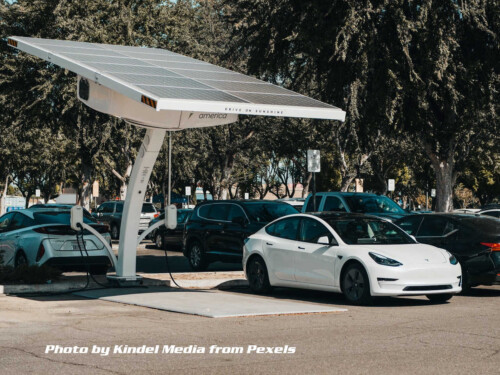2022-03-14
More Drivers are Opting for Electric Vehicles, Here’s Why
(StatePoint) If you think you’re seeing more electric vehicles (EVs) on the road, you’re not imagining it. From 2020 to 2021 alone, there was a 70% increase in registered EVs within the United States. Auto giants such as Ford and Chevrolet are quickly expanding their fleets of EVs, and with Congress passing historic EV legislation last fall, experts agree that this trend is only set to intensify.
With all the buzz surrounding the EV industry right now, one issue has surprisingly managed to persist: the problem of charging compatibility.
“The U.S. EV industry has been held back in the past due to limited charging options and a fragmented EV infrastructure,” says Christopher Maiwald, founder and CEO of Lectron, a leading manufacturer of EV charging solutions. “Recent moves by the federal government are aimed primarily at increasing charging availability.”
Indeed, the recent legislation is geared towards promoting EVs as a sustainable alternative to gas-powered cars. The massive $1.2 trillion infrastructure bill signed last November contains $7.5 billion earmarked to be spent on building out the nation’s EV charging network.
While the government hopes that greater charging availability will lessen range anxiety and boost driver confidence, it stops short of quelling compatibility concerns.
American AC charging infrastructure is currently divided between two types of charging standards: Tesla and J1772 (all other EVs), while the country’s DC charging infrastructure is divided even further: Tesla, CSS, and CHAdeMO. “The legislation is a step in the right direction, but it does little to address the issue of charger compatibility,” continues Maiwald.
Companies like Lectron are quickly coming up with ways of solving this problem. For example, in an effort to help Tesla drivers access J1772 chargers, Lectron offers the J1772 to Tesla Adapter, which provides four to six times more charging options, and may prove vital to Tesla drivers in accessing the nation’s expanding J1772 charging network.
Likewise, since Tesla has already built over 15,000 publicly accessible charging stations nationwide, Lectron offers J1772 drivers the 48 Amp Tesla to J1772 Adapter, which is the only adapter on the market that supports 48 amps of maximum current and 250V of maximum voltage — meaning wider charging access and faster charging times.
Another way the industry is handling the growing compatibility problem is through the wider use of portable chargers. Lectron’s 40 Amp Level 2 Charger, for example, provides fast Level 2 charging for EV drivers. So, no matter where they are, they always have a quick charging option available to them.
The final hurdle toward greater EV acceptance may not be related to public charging stations at all. Maiwald explains, “While ensuring public charging access is important, having a powerful home charging option is what will truly lead to widespread acceptance and make EVs the transportation of the future.”
The company is currently rolling out its most powerful in-home charging station yet — the Lectron V-BOX. It has a maximum of 48 amps of power and comes in three different versions: standard, smart, and bi-directional, with all three options slated for release later this year.
More information about the latest EV chargers and charging accessories can be found by visiting ev-lectron.com.
Thanks to expanded infrastructure and improved technology, EVs are becoming a more convenient and viable option for a growing number of drivers.
*****
Articles posted on this site are the works of their respective authors. They may be for informational or entertainment purposes and do not necessarily represent the views of this website nor imply endorsement by this website, nor endorsement of this site by the authors, nor do we get paid for placing articles on this site. Please do your research and seek professional advice before using any information.

